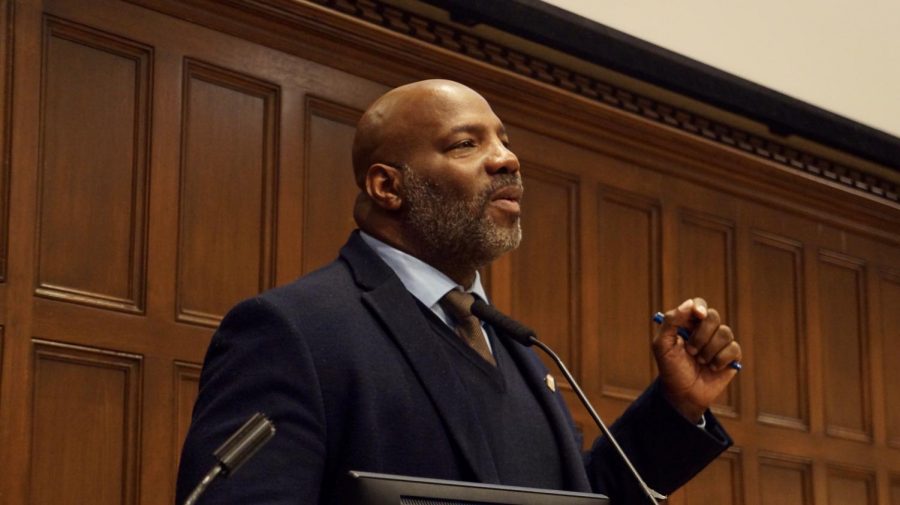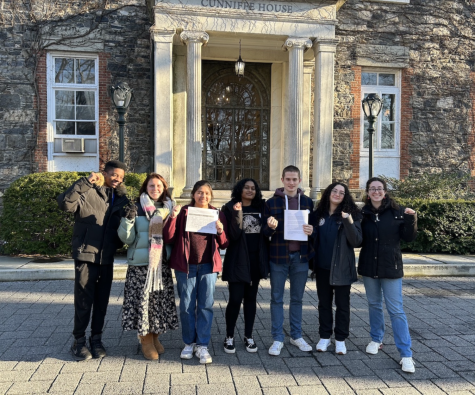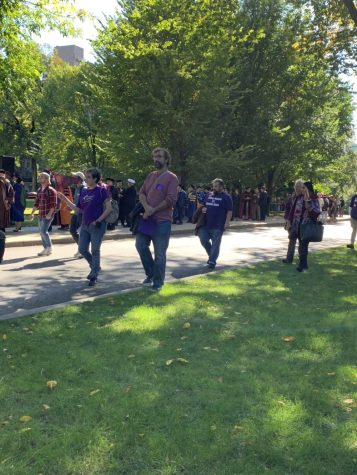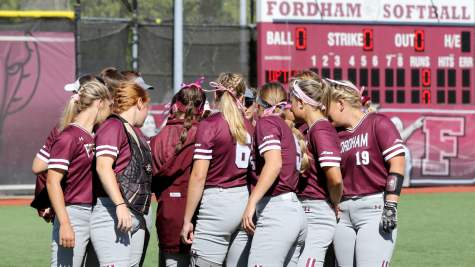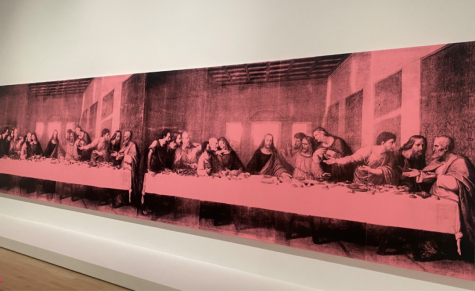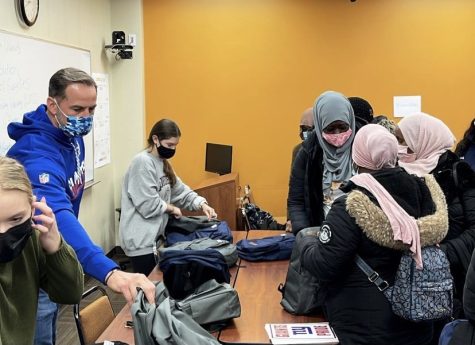ASILI hosts Jelani Cobb for Talk on Racism and Injustice
Jennifer Hoang/ The Fordham Ram
Jelani Cobb spoke to Fordham students about “half-life to freedom.”
On Thursday, Nov. 8, Fordham University’s Black Student Alliance (ASILI) welcomed journalist and historian, Jelani Cobb, to speak about race and injustice in today’s America.
Born and raised in the diverse borough of Queens, N.Y., Jelani Cobb is no stranger to racism. His authoritative and confident presence filled Fordham’s auditorium the moment he stepped onto the stage. However, feeling comfortable in his own skin was not always easy for him. He said in school, people always assumed he was a dumb football player because of his large stature. Since then, he has been determined to show the world that he is the exact opposite.
Cobb has been a professor at the Columbia Journalism School since 2016 and is currently teaching a class that examines the history of race and its implications on reporting and media. He began writing for The New Yorker in 2012 and was the recipient of the Sidney Hillman Prize for Opinion and Analysis Journalism in 2015. Cobb is also the author of three books, each touching upon contemporary issues of politics, history, race and culture.
Cobb’s speech focused on the “half-life of freedom,” the idea that struggles encountered in the past can just as easily be resurfaced in the present.
“I so often find myself in a context where I’m wondering if I’m in the past or if I’m in the present,” said Cobb during his presentation. “I have the feeling that sometimes my history syllabus has jumped off of the page, and that we are now reading it as a newspaper — that things that we saw once, that we thought we could teach about as artifacts in history, we are now seeing again in a contemporary context.”
As an example, he drew similarities between the dialogue used to describe the Chinese in the 1880s and the verbiage used in 2019 to describe Mexicans and Latin Americans as “drug dealers” and “job stealers.”
He explained how dynamics in the present are no different from those in the past: that if America is to truly change for the better, its citizens must realize that “democracy requires constant vigilance.”
“I think it’s really important for Fordham to host these events,” said Rozine Pepushaj, FCRH ’22. “Because sometimes we’re so invested in what is happening in our own lives…that we forget about the things we should be doing for our communities in order to move forward like we were meant to.”
Issy Asianah, FCRH ’20, the vice president of Fordham’s ASILI, said the club hosts these types of events on campus to help inform and educate the student body.
“Jelani Cobb was a very intentional choice for us because of what ASILI, as a club, stands for,” said Asianah. “We stand for the black identity, we stand for black students on campus.”
As an international student from Nigeria, Asianah said she never really knew about racism before coming to America.
“Racism plays a different role and looks different in Nigeria,” said Asianah.
She said she has been trying her best to deal with systemic racism and real-life encounters of prejudice and injustice as a college student for the past four years.
“I just want to be a college student,” said Asianah. “But I can’t just be a college student, I have to be a black college student.”
With a majority of the Fordham University student population being white, Asianah and other members of ASILI said they often feel like outsiders on their own campus.
“Sometimes I would just like to exist and glide through campus… but I know it’s not possible. That’s not how I feel,” said Asianah. “I don’t feel very comfortable coming to campus every day. I like living in the Bronx. I blend in with people in the Bronx because they look like me, and I like that a lot, but coming onto this campus is different.”
Asianah hopes that students, faculty and administration attend ASILI-hosted events and learn from them. Only by encouraging constructive discourse and making individuals aware of their biases can a campus foster racially and politically conscious students, according to the club.
When asked by an audience member how the youth could help solve reoccurring issues, particularly those relating to race, Cobb refused to answer and redirected the question back at the student. He said the youth should know how to answer that question better than he does.
“Get with people who are also asking those types of questions,” he said. “Talk with them, interact with them, and the things that you need to do will become apparent much more quickly.”
Cobb said the present is no worse than the gruesome past America has previously endured. He said he often thinks about the struggles his mother and father faced in Jim Crow Georgia and Alabama. Thinking in relative terms helps him remain optimistic for the future.
“Each of the things that we take for granted as freedoms in this country exist precisely because of the actions people took in the moments like the one we exist in right now,” said Cobb.



































































































































































































